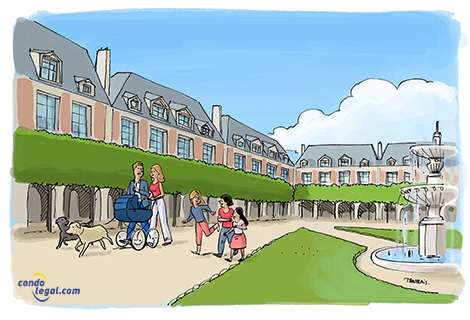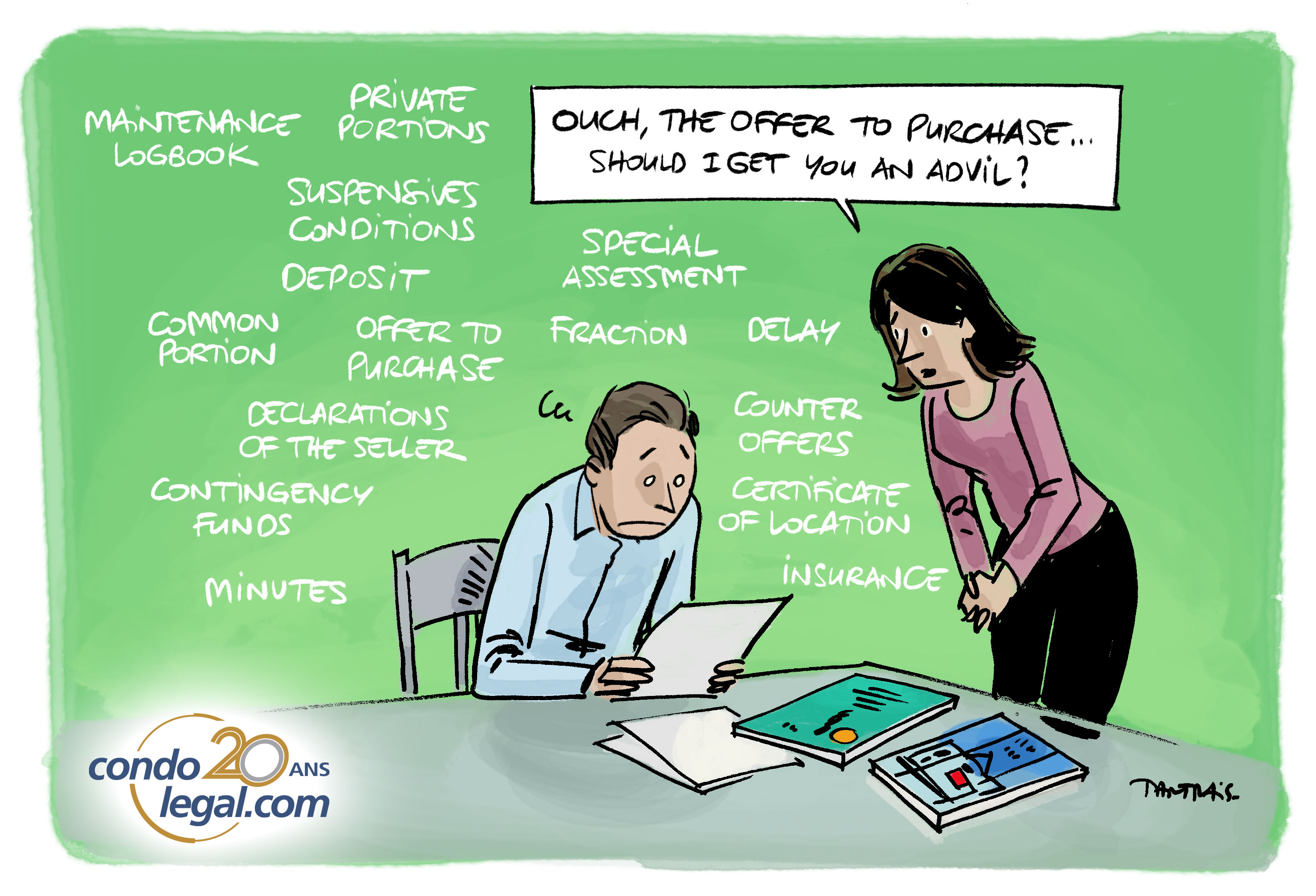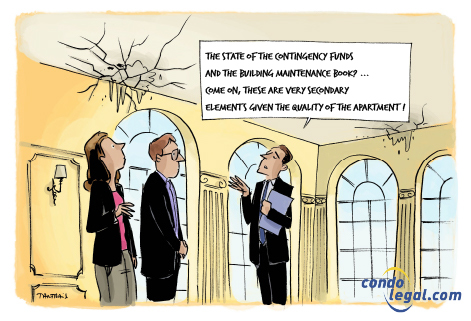
Buying a condo isn’t only a matter of the inspection of the targeted immovable property. The atmosphere of the neighborhood is equally important because it can vary from place to place. Beyond the rules of conduct in force in the coveted co-ownership, knowing the dynamics of the neighborhood should always be a priority. The purchase of a condo is a long-time commitment for many purchasers. In fact, he will have to live in it at least a few years so that his investment is profitable. It is therefore in his best interest to choose a location that will meet his expectations to avoid a premature move.
If in doubt, renting a similar apartment in the vicinity for at least a year can be a wise move, allowing sufficient time to evaluate the prevailing atmosphere.
A survey is highly recommended
One of the first concerns a buyer should have is his safety. It is judicious to ask about the crime rate in the targeted neighborhood, and to find out if there are street gangs. Some areas appear to be safe during the day, but after darkness, the patronage of party-animals, or even the presence of shady individuals, combined with poor lighting may not be reassuring.
To verify if a building is located in a safe neighborhood, exploratory visits should extend in a wide radius from its location. The presence of dilapidated or even abandoned buildings, in the neighboring area could compromise the tranquility of residents, on account of squatters and homeless people who may reside therein. In this situation, contacting the municipal authorities is the best thing to do. Thus, a potential buyer can inquire about the fate of these buildings. He should be able to know, at the very least, whether a zoning change will allow their demolition to rebuild.
Getting a feel of the personalities of the locals
Whenever possible, visit the neighborhood on foot. It will be much more effective than patrolling the streets in a vehicle. Talking to neighbors who live nearby the targeted building will provide valuable information, such as, regarding the foreseen activities in the vicinity. Patronizing the local dinner is also a valuable source of information, as usually, the clients are mainly locals. It will thus, be possible to observe the comings and goings, but also to get a feel of the personalities and the state of mind of the patrons.
Neighborhood redevelopment
Developing neighborhoods should also be carefully analyzed. Some of them will improve over time, so that they will generate added value at resale. Over the last decades, we have seen former industrial sectors benefit from a revival as residential neighborhoods. This phenomenon can be an occasion for savvy buyers to benefit from bargains. The goal being to buy now, at low cost, in a location where, one day, everyone will want to live.
The quality and availability of local services are other crucial information. In general, parents do not want to compromise on the choice of the schools their children will attend. Those that have a good rating will make them want to live in a neighborhood. Highly rated educational institution, public or private, will enhance the value of a property. It is advisable that the distance to schools, businesses, parks, tennis courts and other utilities be reasonable.
Public transit
Many prospective buyers are likely to prioritize public transit. Those who move in near the Metro or suburban train have an advantage because commuting is easier. It goes without saying that as a rule of thumb a property located near a bus stop, subway or train station appreciates substantially over time.
Some search engines are great tools for scouting and for planning visits to the prospective neighborhood. They do not replace actual visits on location but nevertheless provide insights into what the location has to offer. In conclusion, before choosing a property, it is better to ascertain that the location is not the scene of undesirable activities. It should also you’re your expectations, at least in part, to have peace of mind.
 WHAT YOU SHOULD KNOW! Buyers too often neglect resale value. Yet, one of the first elements to consider before buying is the view. If the track behind your condo did not matter to you when you bought it, it could be a negative element at resale.
WHAT YOU SHOULD KNOW! Buyers too often neglect resale value. Yet, one of the first elements to consider before buying is the view. If the track behind your condo did not matter to you when you bought it, it could be a negative element at resale.
 WHAT TO KEEP IN MIND: Evaluating the commuting distance between the coveted property and your workplace is crucial. Many buyers realize, only after the fact, that they have underestimated the time spent commuting. Thus, to properly evaluate the duration of the commute, try it at rush hour.
WHAT TO KEEP IN MIND: Evaluating the commuting distance between the coveted property and your workplace is crucial. Many buyers realize, only after the fact, that they have underestimated the time spent commuting. Thus, to properly evaluate the duration of the commute, try it at rush hour.
 WARNING! Misjudging the targeted neighborhood can be costly if it leads to a premature resale. You should keep in mind that buying and moving into a new residence, as an owner, engages expenses such as notarial fees and disbursements, transfer tax and moving costs.
WARNING! Misjudging the targeted neighborhood can be costly if it leads to a premature resale. You should keep in mind that buying and moving into a new residence, as an owner, engages expenses such as notarial fees and disbursements, transfer tax and moving costs.
Return to the super file Condominium Shopping Guide



